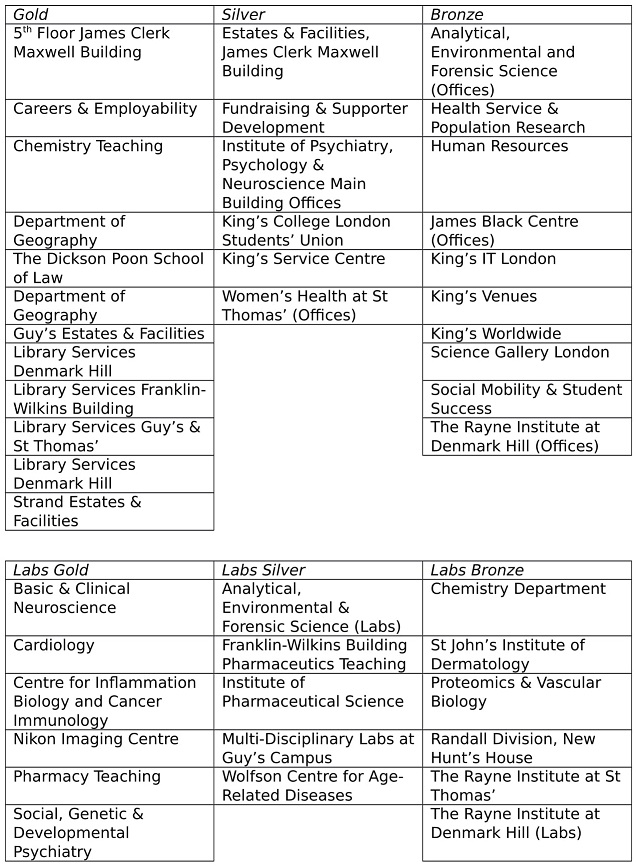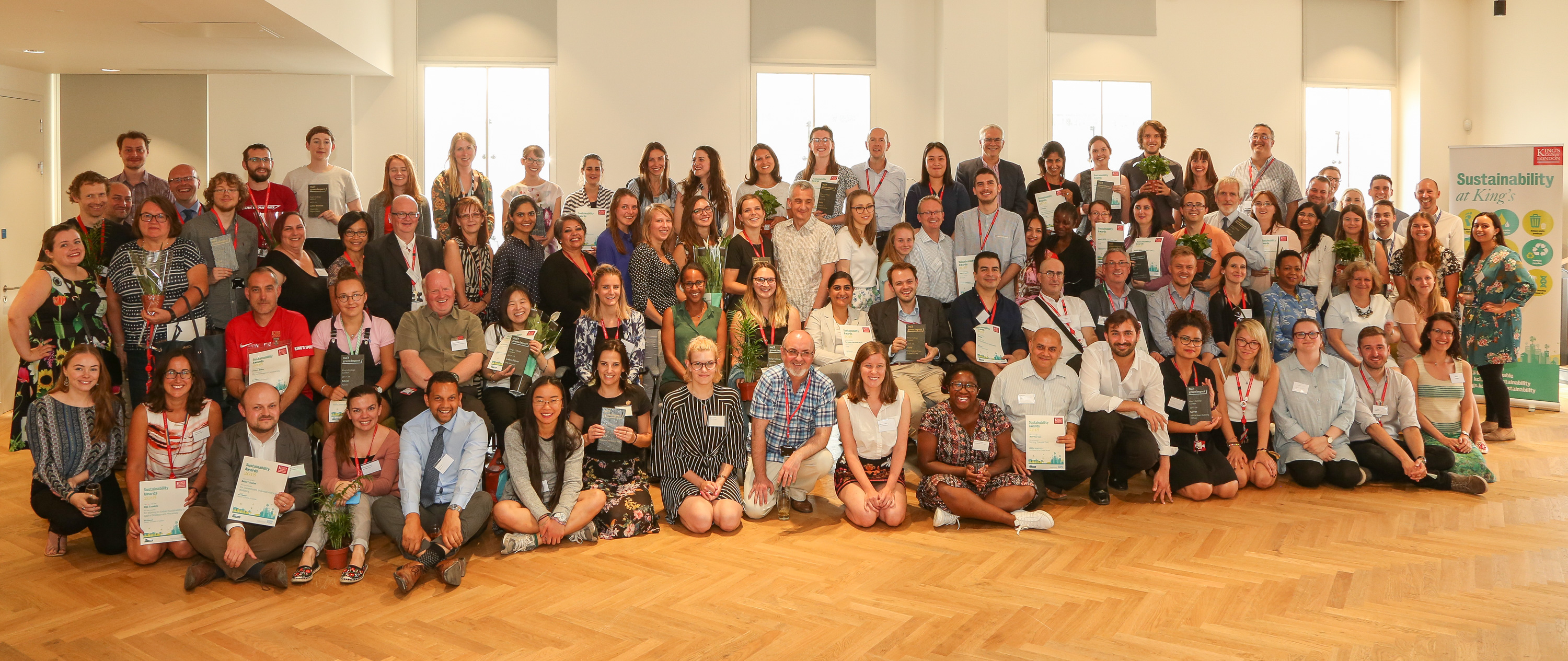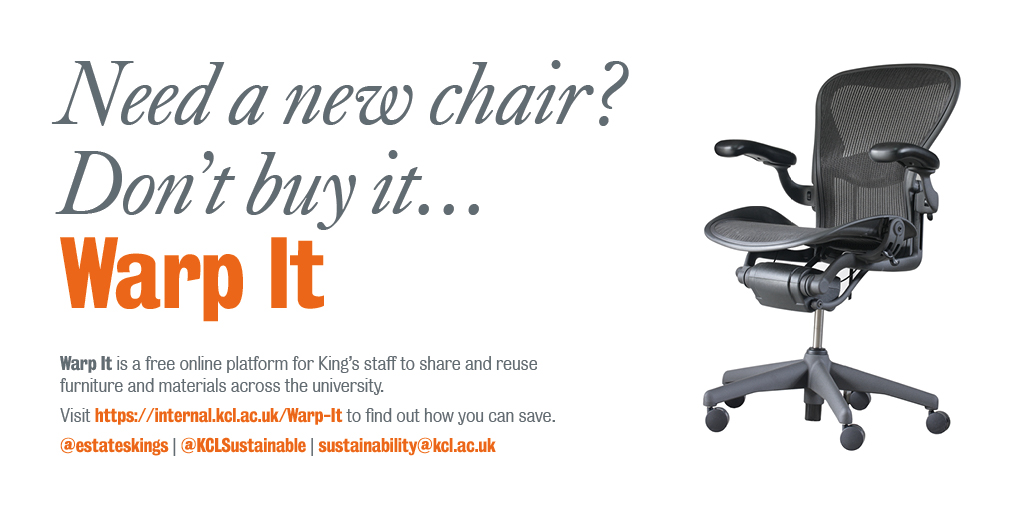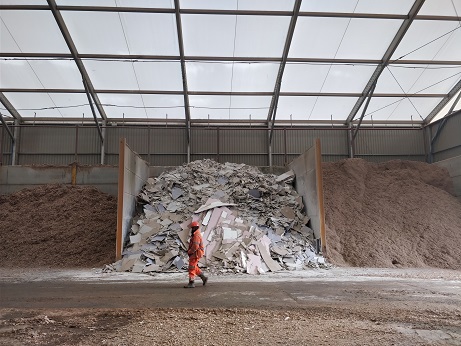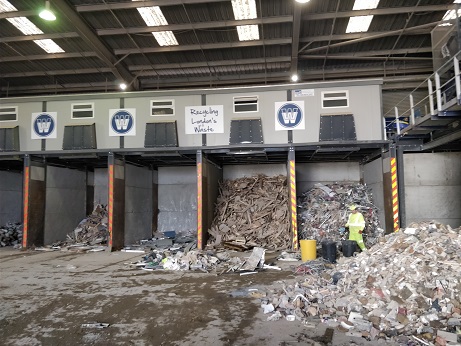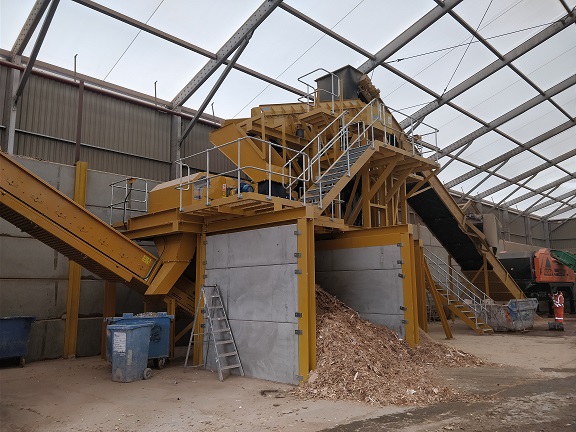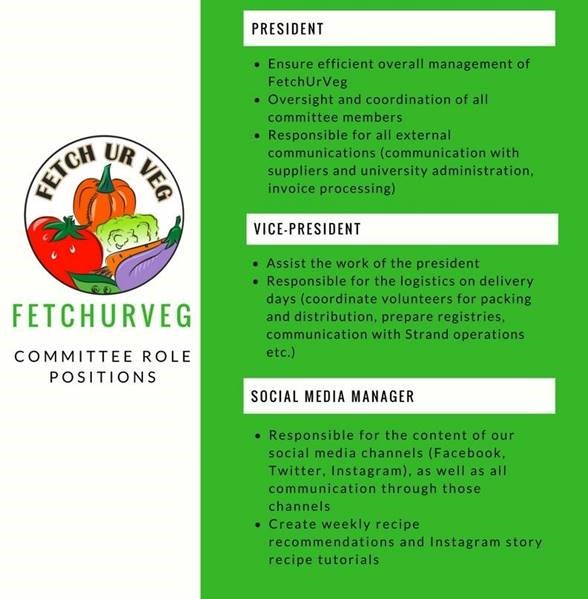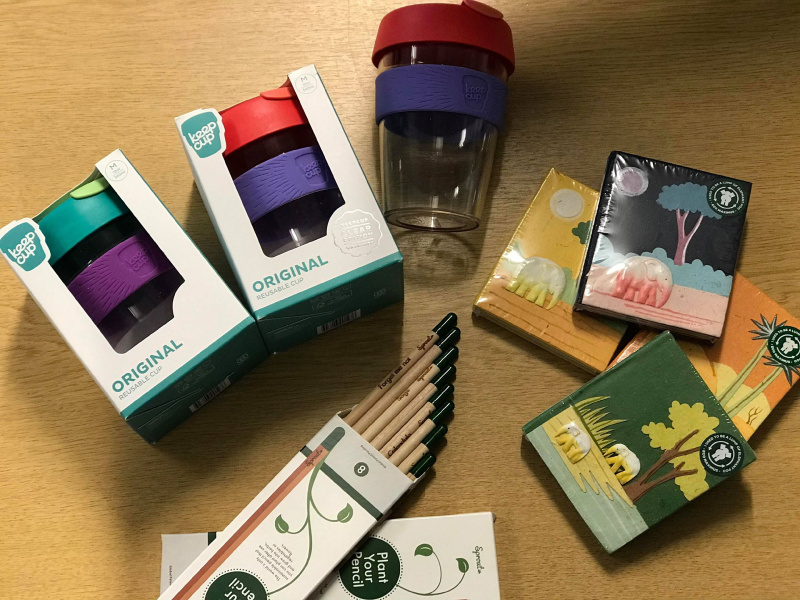It’s been a busy year and last week on 10 July we had the pleasure of celebrating the achievements of everyone who has been actively involved in sustainability over the past year here at King’s.
The annual King’s Sustainability Awards ceremony took place at Bush House and we celebrated the passion and commitment of the 235 Sustainability Champions who have carried out 1,950 sustainability actions, nearly 500 more than the previous year.
45 Sustainability Champion Teams were awarded: 16 Bronze, 11 Silver and 18 Gold Awards.
We also celebrated with Special Awards for other staff and students from across the university who have worked to embed sustainability across operations, teaching and the wider King’s community.
Working Towards Gold: 1st Floor James Black Center Labs
Best at Recruiting New Champions: Cardiology, Pharmacy Teaching
Outstanding Achievement: 5th Floor JCMB, The Dickson Poon School of Law
Supporting King’s Food in the Sustainable Restaurant Association: Ali Hepple & Izzy Brayshaw
Supporting the Analysis of Sustainability Data: Analytics
Commitment to Embedding Sustainability: Operational Assurance
Commitment to Sustainability: Bouygues, CIS, Procurement, Servest
Commitment to Waste Reduction and Re-Use (via Warp It): Bush House Project Team
Commitment to Sustainability as Energy Champions: Abdul Lateef, Graham Camplin, Kurosh Bastani, Nick Gouveia
Consistently Achieving Highest Monthly Recycling Rates: King’s Sport
Commitment to Sustainable Campus Refurbishment: Natalie Littleson
Working to Embed Sustainability in Capital Development: Olga Ezquieta
Commitment to Implementing Sustainable Lab Practices: Oliver Austen
Commitment to Sustainability & Wellbeing: Robert Staton
Most Improved Recycling Rates: Stamford Street Apartments
Commitment to Biodiversity: Stuart Bailey
Going Above & Beyond: Library Services
Sustainability Awards 2018 – Staff and student champions
Serve to shape and transform
We welcomed Professor Jonathan Grant, Vice President & Vice Principal (Service) who thanked all involved for being the ones to motivate others and to stand up and make a difference to the environment and our local communities around King’s. ‘Service’ is the term we adopted at King’s in our Strategic Vision 2029 to describe our commitment to society beyond the traditional roles of education and research. Professor Grant shared details of the King’s Service Strategy framework and explained that the Sustainability Champions are an integral part of the framework. The Service Strategy framework will be launched and celebrated on 19 July and all King’s staff and students are welcome to attend.
Sustainability is important to our students
As part of the event we celebrated our students who’ve been involved with a video showcasing their actions over the past year which includes working with King’s Food as Sustainable Food Assistants, auditing our Sustainability Champions teams, taking part in Student Switch Off actions and competitions in King’s Residences, working as Sustainable Food Assistants and running social enterprises such as Zest and Fetch Ur Veg- who offer weekly organic veg box deliveries.
National Sustainability Awards
We saved a surprise for Awards day and our Library Sustainability Champions teams found out that they had been nominated as finalists at the national EAUC Green Gown Awards, recognising the impact that they have had by making the libraries more sustainable for both staff and students. This year we now have 3 finalists at the Green Gown Awards, including Widening Participation’s Parent Power project and King’s Food for their work on ditching disposables.
THANK YOU
Thank you once again to everyone who has helped us make a difference here at King’s this year. The efforts of all those involved really do add up and help to achieve our university sustainability targets. Achievements this year include:
- 30% carbon reduction achieved (by July 2017) which is keeping us on track to achieve the 43% carbon reduction goal by 2020 (2017/18 figures will be shared once available)
- Improving waste recycling rates by nearly 10%
- Reusing furniture and equipment internally at King’s – saving it from disposal and saving £96k in 2017/18
- 36 events held by staff and students in Sustainability Week and Reduce Waste Week
If you would like to find out more about becoming a Sustainability Champion contact the Sustainability Team at sustainability@kcl.ac.uk.

